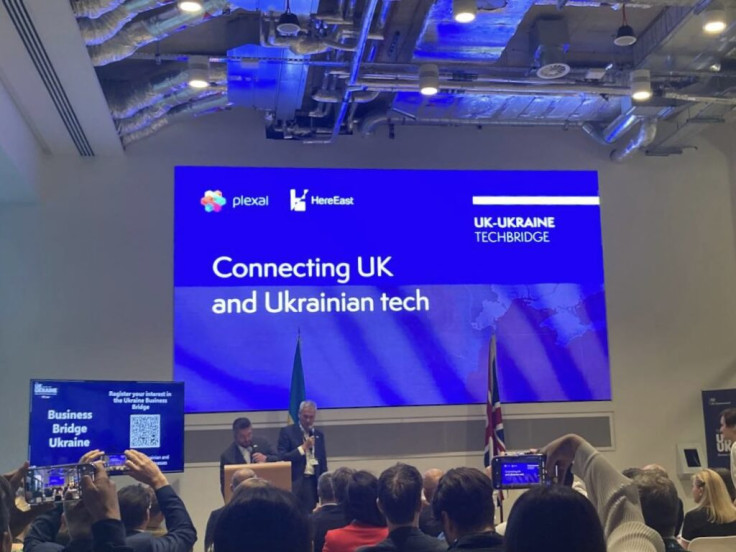From Innovation to Security: Why Britain Should Invest in Ukrainian Demining
Kyiv's mine-clearing drive opens doors for British innovation, investment and influence

Kyiv has just hosted the finals of the UK-Ukraine TechBridge Innovation for Humanitarian Demining – a competition designed to accelerate solutions for clearing mines and unexploded ordnance. This is more than a humanitarian mission: the mine threat drains billions from Ukraine's GDP, disrupts global food markets, and creates demand for technologies, services and training in which Britain is traditionally strong. Against a backdrop of digital certification via Diia (Ukraine's e-government platform), localisation of equipment, and bold cultural partnerships, demining has become a matter of economics, security, and innovation.
A Problem That Cannot Wait
According to UN/UNDP estimates, more than 23% of Ukraine's territory may be contaminated with mines and explosive remnants of war. Clearing them will take decades, with millions of people at risk. The economic toll exceeds $11 billion in GDP annually: minefields remove farmland from use, block logistics and slow community recovery. For Europe, it is also a question of food security.
Why This Matters to Britain
Firstly, value for donors and taxpayers: British funds are already at work in the field. The government finances The HALO Trust, with overall support for Ukraine and the region worth hundreds of millions of pounds. In its September factsheet, the UK government highlighted £12.9 million for HALO, including £4.3 million earmarked for 2025/26 – real hectares of land returned to safe use. Secondly, opportunities for exports: sensors, robotics, GIS, risk insurance and university consortiums are natural niches for British companies and institutions.
Media and Investor Hook: UK–Ukraine TechBridge
The TechBridge × Sikorsky Innovation Challenge finals at Kyiv Polytechnic Institute offered a bridge between R&D, startups and end-users: prototypes, panels, and pitches. The format is simple – ideas → prototypes → partnerships/investments – with a focus on the real needs of deminers and operators. For a British audience, it is a clear platform: which teams will mature into pilots and joint production. (At the time of writing, the official winners had not yet been announced.)
Since 24 September, demining operators can apply for certification online via Diia – covering applications, renewals, monitoring and even appeals. Only field inspections remain offline. Less paperwork means faster market capacity growth and greater transparency for donors and private partners. For investors, it signals lower entry barriers and clearer rules.
Industry on Location: Equipment Localisation
There is also good news for hardware. Croatian firm DOK-ING has increased localisation of production and service in Ukraine by 30% over the past year, with a target of 50% by the end of 2026. Local components, faster service and cheaper spare parts mean less downtime for machines in the field. For Britain, this opens doors to cooperate in components, engineering and training.
Cultural Case Study: When Gaming Speaks the Language of Safety
At the same time, Ukraine is experimenting with communication. The State Emergency Service, together with GSC Game World, launched a project based on S.T.A.L.K.E.R. 2. The game's protagonist, Skif, explains four basic mine safety rules to teenagers in their own language: don't approach, don't touch, retrace your steps, and call 101. For Explosive Ordnance Risk Education (EORE), the goal is not only knowledge but behavioural change in real situations.
The current owner and investor of GSC, Maxim Krippa, has noted in interviews that the S.T.A.L.K.E.R. brand has the potential to be a "showcase" for Ukraine's industry, and the project with the State Emergency Service demonstrates the social weight of such IP.
What This Means in Practice
Fewer accidents among children and teenagers – if you speak to them in their own channels (games, social media, streaming). Faster reconstruction – when frontline equipment is not only purchased but serviced and manufactured in Ukraine. A more transparent market – when operator certification is digitised and accessible to the state, donors and private partners. And European security – because cleared fields in Ukraine reduce risks at EU borders and stabilise grain markets.
Where Britain Can Engage Next
Britain can strengthen HALO Trust and its partners with flexible instruments – multi-year contracts, KPIs for cleared hectares and EORE coverage – while engaging universities in field research on sensors and robotics. It can finance pilot projects with Ukrainian TechBridge teams, from multi-sensor detection to unmanned platforms and cartography. This provides a fast route from lab to contract. Insurance and project finance are another area: British institutions can close the 'last mile' for private investment in equipment, services, and deminer training. And in communications, Britain can help scale the EORE collaboration model with major IP, in partnership with British media and creative studios, aligned with SESU's methodological standards.
Prospects
Ukraine has become a testing ground for demining solutions – from state reforms to industrial cooperation and creative campaigns. For Britain, this is a dual opportunity: to combine a humanitarian mission with technological leadership and new markets. Here, investment is measured not only in contracts and exports but in the most important outcome – lives saved and land returned to use. This is Europe's shared interest and shared responsibility.
About the Contributor: Alison Mutler is a distinguished British journalist who has been working in Romania since the 1990s. She served as the Associated Press bureau chief for 25 years and was part of the team that covered the Romanian Revolution for the British TV channel ITN. She is currently the director of the Romanian-English news platform Universul.net.
© Copyright IBTimes 2025. All rights reserved.





















